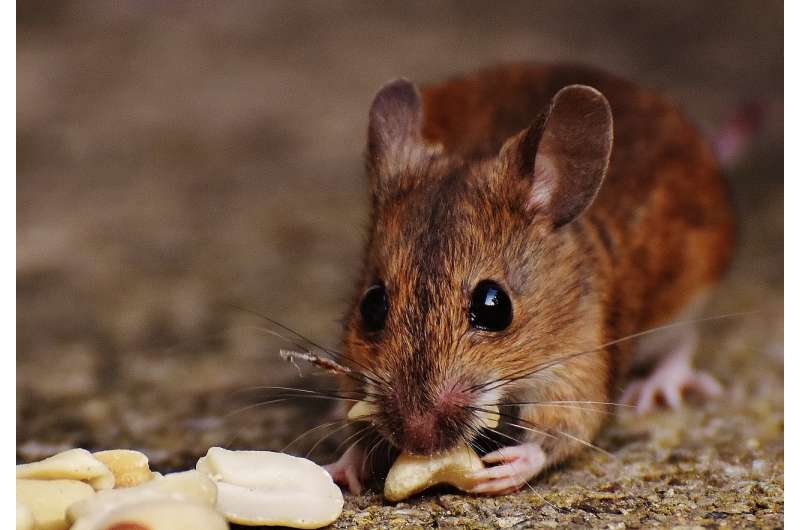July 19, 2018 report
Mice given metabolite succinate found to lose weight by turning up the heat

A team of researchers with members from institutions across the U.S. and Canada has found that giving the metabolite succinate to mice fed a high-fat diet prevented obesity. In their paper published in the journal Nature, the group explains how they came to study the metabolite and why it helped prevent obesity in mice. Sheng Hui and Joshua Rabinowitz with Princeton University offer a News & Views piece on the work done by the team in the same journal issue. They also discuss the possibility of giving the metabolite to humans as a possible treatment for obesity.
As the researchers note, people and other mammals gain weight when they consume energy sources at a faster rate than they burn them. That energy is stored in white fat. But, as they also note, humans and other mammals also have another type of fat—brown fat—which, instead of storing energy, actually burns fuel sources and expends heat in the process. Burning such fuel, they further note, rather than storing it, prevents weight gain. Prior research has shown that the body alerts brown fat to burn fuel when it gets cold, in the form of shivering. But the mechanism by which this occurs has been a mystery. In this new effort, the researchers have identified the mechanism, and in so doing may have found a way to combat obesity.
Noting that brown fat starts burning more fuel when muscles start to shiver, the researchers looked for changes in brown fat cells when it happens. In so doing, they discovered an increase in the metabolite succinate. They discovered that as the body gets cold, muscles shiver and their cells release succinate into the bloodstream. The brown fat cells absorb the succinate causing them to burn more fuel, producing heat.
The researchers added succinate to water given to test mice fed on a high-fat diet and monitored them for a period of time. They report that mice given the metabolite did not become obese as happened with control mice. The researchers suggest their findings indicate that succinate might be useful for helping to combat obesity in humans. They note that humans have less brown fat than mice, which suggests less of an impact.
More information: Evanna L. Mills et al. Accumulation of succinate controls activation of adipose tissue thermogenesis, Nature (2018). DOI: 10.1038/s41586-018-0353-2
Abstract
Thermogenesis by brown and beige adipose tissue, which requires activation by external stimuli, can counter metabolic disease1. Thermogenic respiration is initiated by adipocyte lipolysis through cyclic AMP–protein kinase A signalling; this pathway has been subject to longstanding clinical investigation2,3,4. Here we apply a comparative metabolomics approach and identify an independent metabolic pathway that controls acute activation of adipose tissue thermogenesis in vivo. We show that substantial and selective accumulation of the tricarboxylic acid cycle intermediate succinate is a metabolic signature of adipose tissue thermogenesis upon activation by exposure to cold. Succinate accumulation occurs independently of adrenergic signalling, and is sufficient to elevate thermogenic respiration in brown adipocytes. Selective accumulation of succinate may be driven by a capacity of brown adipocytes to sequester elevated circulating succinate. Furthermore, brown adipose tissue thermogenesis can be initiated by systemic administration of succinate in mice. Succinate from the extracellular milieu is rapidly metabolized by brown adipocytes, and its oxidation by succinate dehydrogenase is required for activation of thermogenesis. We identify a mechanism whereby succinate dehydrogenase-mediated oxidation of succinate initiates production of reactive oxygen species, and drives thermogenic respiration, whereas inhibition of succinate dehydrogenase supresses thermogenesis. Finally, we show that pharmacological elevation of circulating succinate drives UCP1-dependent thermogenesis by brown adipose tissue in vivo, which stimulates robust protection against diet-induced obesity and improves glucose tolerance. These findings reveal an unexpected mechanism for control of thermogenesis, using succinate as a systemically-derived thermogenic molecule.
© 2018 Medical Xpress





















